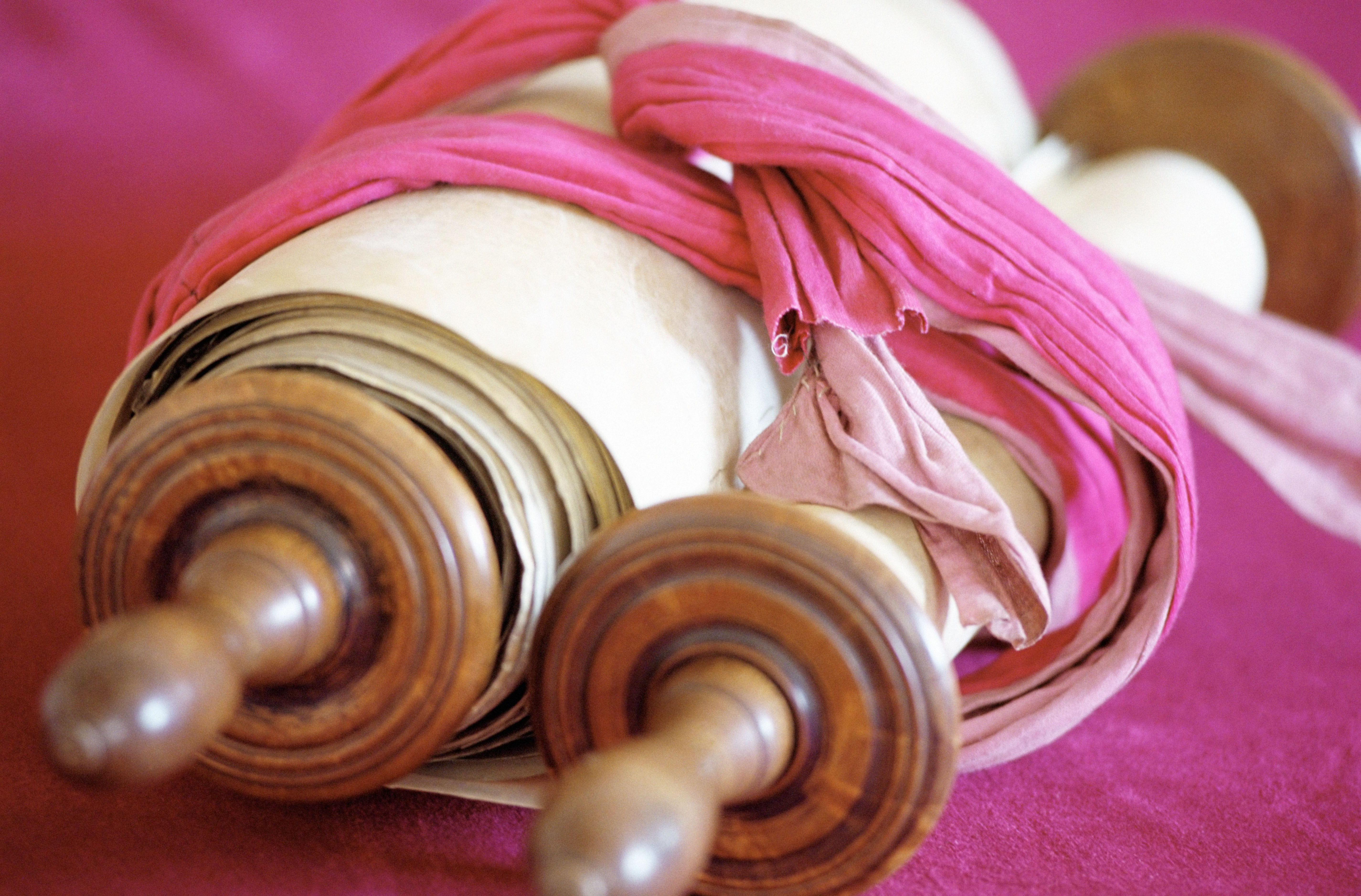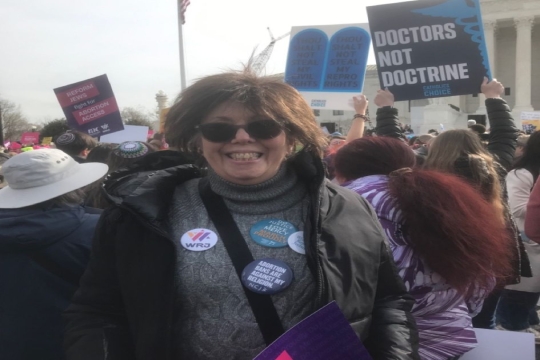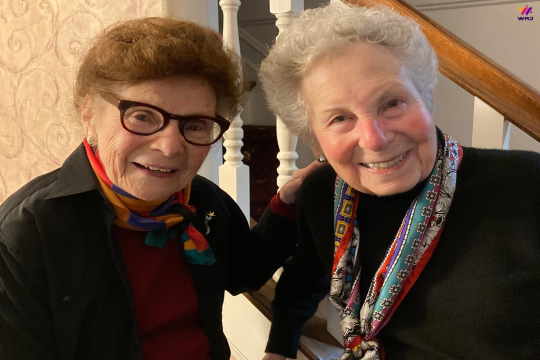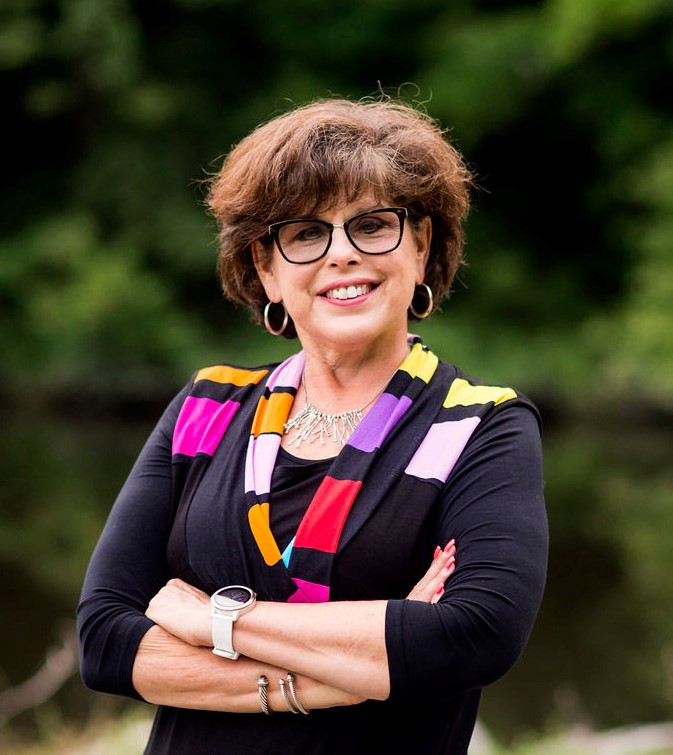
“6336 Hebrew letters…1686 Hebrew words…126 verses…208 lines…and always on the 3rd Shabbat after Simchat Torah. You can stop humming. Those are the statistics belonging to Lech L’cha.”
(Thank you to Rosanne Selfon for this handy quote from your 2020 Voices post).
In Rosanne’s article, she proudly claimed Lech L’cha as her Torah verse with a willingness to share. I have a special kinship to this verse, as well. Twelve years ago, I stood on the bimah as an Adult B’nai Mitzvah, reading directly from the Torah- Lech L’cha was my portion. I was doing something that was not allowed when I was of Bat Mitzvah age. Growing up in a Conservadox Jewish household, a Bat Mitzvah meant that women were “allowed” to choose a passage out of a book. We could read it in Hebrew on a Friday night, but we could never touch or read directly from the actual Torah scroll. I was a kid, not so much into the whole “Hebrew” thing; I picked the shortest passage from the book. Later on, the world changed, and I, along with it, reading from the Torah in front of an entire congregation was a dream come true. I was frightened, excited, and overwhelmed, but I gathered my courage and stood before the congregation and read. While visiting Israel, I stood on Mt. Carmel and read this passage again in Hebrew- a woman reading from a Torah scroll in Israel. The importance of the moment did not escape me.
In this powerful parashah, Abram and Sarai travel to Canaan. Due to a famine in the land, they temporarily relocate to Egypt, where Pharaoh unsuccessfully attempts to add Sarai to his harem. They return to Canaan with great wealth, and Abram parts with his nephew Lot. Abram defeats the armies of the four kings who had taken Lot hostage. God seals a pact with Abram, bequeathing the lands of Canaan to his descendants. Thirteen years later, God changes Abram’s name to Abraham (“father of multitudes”) and Sarai’s name to Sarah (“princess”). God promises that a son will be born to them; from this child, whom they should call Isaac (“will laugh”), will stem the great nation with which God will establish his special bond.
How could we have survived until this day as a people had we not received from Abram the courage to free ourselves from the self-imposed slavery, of self-limiting expectations, and harnessed dreams? Abram couldn’t be Abraham living in his father’s house, among familiar surroundings, conducting the life chosen for him. In finding himself, Abraham found what we are all looking for: a purpose, a reason to get up in the morning.
Abraham’s journey and our quest to know ourselves are the same. In truth, it’s not a journey we take only in our formative years as teens or young professionals; it’s a journey we take time and time again. We are always on that journey.
That journey was recently thrust upon me. Twenty-five years ago, I decided to move from a successful marketing career to the association/nonprofit world. There was a coldness to marketing that led me to that uncomfortable, unfulfilled feeling that can overtake and consume. I needed a purpose, and I was given the unique opportunity to advocate for people with disabilities, assisting them in navigating through a confusing system of illogical policies set up to inherently dissuade, instead of foster, independence. After 20 years with the same association, in the position I loved, providing services to the underserved, I was forced to make a career choice. This choice was not of my making. I had planned to stay comfortably right where I was. The universe had another plan for me. I moved to a new nonprofit, new staff, a new state, and a big job with a big title. This parashah came to mind while making my decision of where I would land when the dust settled. The thought of leaving something I loved was overpowering and debilitating. According to my family and friends, I lost sleep, appetite, and most of my sense of humor. I had assisted over 1000 clients, and I felt like I was about to abandon each and every one of them.
Abraham was comfortable in his life; he had built his future and was settled in. Was it a meaningful, fulfilling life? It might have been. Was he fearful of what was to come next? Of course, who wouldn’t have been? Was I afraid of what my new position would bring? Of course! Was Abraham fearful of the people he would meet along the way? What would he find when he reached his destination? I had all of these same questions and more. I had a choice of many roads I could have taken. Abraham had a choice of which roads to take.
As best-selling author Brene Brown says: You may not have signed up for a hero’s journey, but the second you fell, got your butt kicked, suffered a disappointment, screwed up, or felt your heartbreak, it started. It doesn’t matter whether we are ready for an emotional adventure—hurt happens. And it happens to every single one of us, without exception. The only decision we get to make is what role we’ll play in our own lives. Do we want to write the story, or do we want to hand that power over to someone else? Choosing to write our own story means getting uncomfortable; it’s choosing courage over comfort. Only when we are brave enough to explore the darkness will we discover the infinite power of our light.
Abraham took on the role of hero by getting uncomfortable and choosing courage. He was willing to explore the darkness and came out the other end as a leader and hero.
I strive every day to live by those words, taking on the courage to go outside of my comfort zone and be my authentic self. We have had to move outside of our comfort zones in different ways during the past year, quickly learning to navigate increased technology dependence, finding new ways to connect during a time lacking in real human contact, reactionary politics, and so much more. We all are coming out the other end finding our authentic selves.
No matter, either physically or metaphorically, finding a purpose in life is truly a lifelong struggle, a question that we strive for every day. Sometimes, as with Abraham, it means to cut all connections to our past and chart a new course. I cut ties to my previous employer and staff – charting a new path. A few months into this new journey, I am still nervous about the decision I made. I am gratified and comforted in the support I receive every day from my new staff, family, friends, and Women of Reform Judaism (WRJ) sisters.
Sometimes our journey of self-discovery is a return home to the source of which we are - a place we may have moved away from, always returning to the warm embrace of friends and family. Sometimes it is a complete transformation and change. No matter where I am in my journey, my Judaism and Torah is what gives me the courage I need to move forward. To chart the course meant. I wish for everyone to choose courage over comfort, not be afraid of the power to explore and discover the light we all bring to this world.
Marilyn Morrison, CWIC, WISA, CAE of Temple B’nai Shalom in Fairfax Station, VA, is the current President of WRJ Mid-Atlantic District, WRJ North America Board Member, and WRJ North American Philanthropy Committee member.
Related Posts

Andrea Stillman: A WRJ Leadership Spotlight


